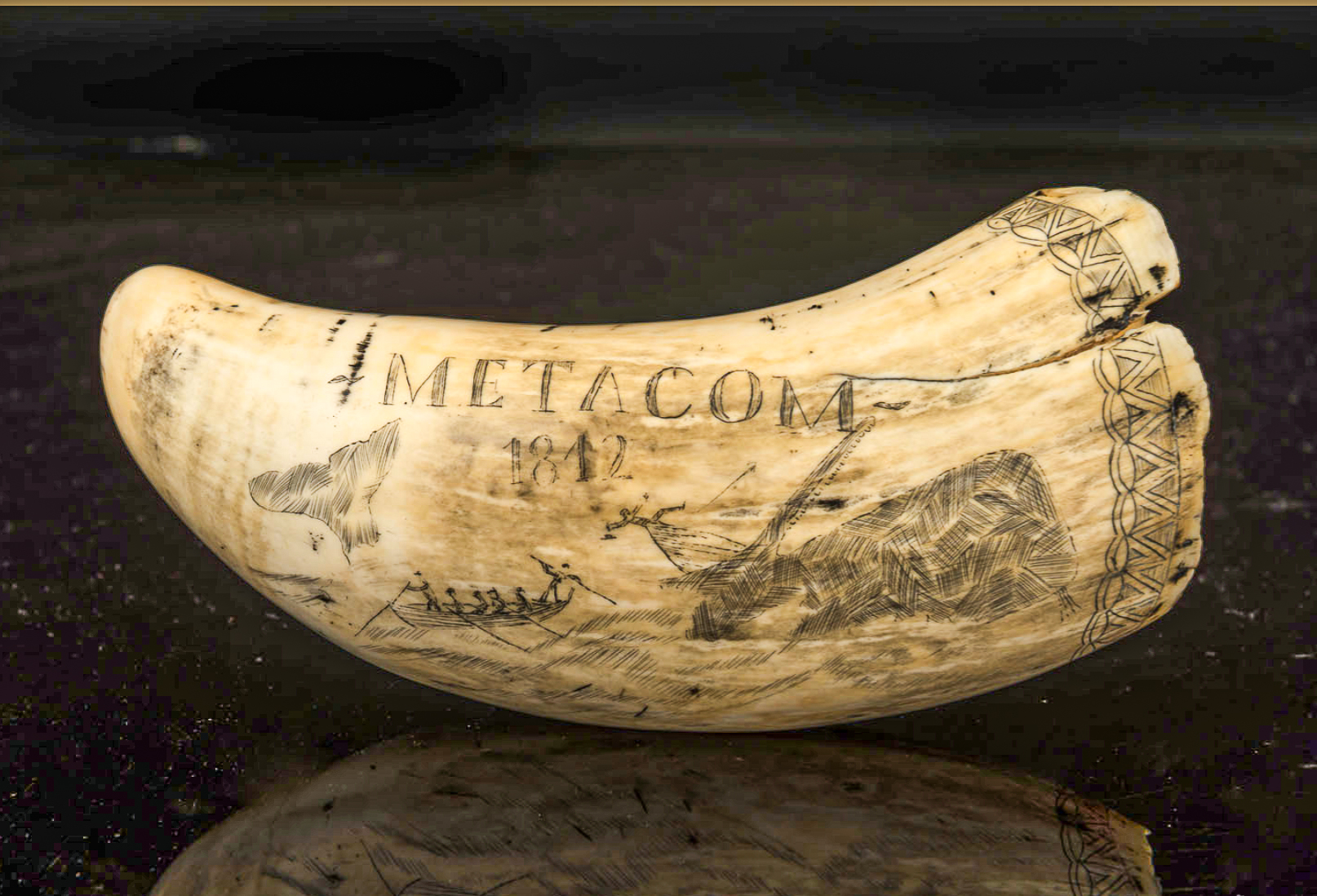
Only $100,000 a week over summer in Nantucket, so went the headline for this property overlooking the Atlantic Ocean. There is the idyll for those who remembered a summer before climate change, which is currently besieging New England. One doesn’t associate the Brahmins of Boston with being ravaged by hurricanes.
The property seems a bit close to the ocean, and maybe there will be a different perspective in five years’ time when the cliff buffer is gone.
Nantucket is an exclusive island, off the Massachusetts coast. How could God not protect such a property! It is certainly not a place for an Australian without the “moolah” to undertake such a summer rental unless one had access to a Cayman Island account labelled “Australia defence bureaucrat”.
To put it into perspective, the property comprises a six-bedroom main house and a two-bedroom guest cottage, a pool, private beach stairs, and an outdoor kitchen. The lot on which the estate was built had sold for US$3.25m to a limited liability company run by managers based in New Jersey.
When I saw this photograph, it frankly did not seem worth the rent, but it does house at least 16 people, so a week shared round would soften the financial blow of having a beautiful view of an endless Atlantic Ocean, from a place whence myriad American whalers would have set sail to the Southern Ocean nearly two hundred years before.
Some of these whalers would leave their inheritance on the Tasmanian Islands, as they ventured South in search of the great white whale. Such was the value of the harvest (meat, bone (baleen), ambergris and blubber) that men would sail that far for up to four years at a stretch. Whale oil derived primarily from the blubber was used to light lamps, lubricate machinery and make soaps and detergents – and perfumes. Depending on the whale, the oil characteristics varied.

So that is the point of why we came to New England, in search of the whaler boat commemorated on a piece of scrimshaw I had purchased many years before in a village south of Hamilton, the centre of the fertile Waikato region of the New Zealand North Island. With the name of the ship, its destination and the year, we felt there was a good chance of finding out about the voyage that had brought that particular whaler to the South Seas.
This interest in scrimshaw coincided with visiting friends, who had a summer house in Lubeck, Maine on the Canadian border, overlooking the Bay of Fundy. We had discovered an efficient way to travel, after landing from Australia at JFK, was to take a limo, bypass New York and head for Providence, Rhode Island, capital of that tiny State wedged between Connecticut and Massachusetts, but with easy access to the summer recreation New England areas such as Hyannis Port and Cape Cod.
Providence thus was a convenient place to stay for a few days. Walk down the street to hire a car. The city is small enough to be able to move around. Providence is home for multiple high class educational institutions headed by the Ivy League Brown University.
Providence at that time was undergoing a makeover from an essentially industrial city of grime to a modern, clean, technologically “savvy burg” – one of the first so created as the Industrial Revolution gripped America in the 19th century. Providence also developed as a busy port, as it is situated at the mouth of the Providence River at the head of Narragansett Bay – a jagged gash in the Atlantic Coast.
We stayed in an architectural jumble which had been converted into the Providence Hotel, having laid unfinished since before WWII. It was originally to be a Masonic temple, with all the weird pretentiousness which characterises the arcane symbols of that aproned brigade. The Depression effectively killed the project until the mid-2000s, when the Renaissance Hotel was built from the Temple shell. I believe we were some of the first who stayed there.
But that was not the highlight of our search for information about the whaler pictured on the piece of scrimshaw. Funny how the photograph of the House on Nantucket stimulated my memory of that visit. Nantucket was one home of the American whaler. The place we picked out to find more about the ship, which had been etched on our whale’s tooth, was New Bedford, from where the ship had sailed. Here in this picturesque clapboard township was the whaling museum.

This museum houses the thousands of logbooks carried by the American whalers and on return lodged in New Bedford. Unfortunately, the log held there for our ship was only up to the year before – 1841. However, we did establish that the ship had visited the Pitcairn Islands on 18th August 1842, noting it had then been out in the Pacific for 9½ months, and was carrying 450 barrels of sperm whale oil. The ship is reported as having sunk off Pago Pago in 1860.
As a young man I was entranced by Moby Dick, the incredibly complex story by Herman Melville. If I had known I could spend an American summer at the New Bedford Whaling Museum on Johnny Cake Hill, with one of those logs, which needed to be read and properly catalogued, I would have jumped at the chance. Perhaps if I had gone to Yale, as I could have in the early 1970s, in retrospect that would have been the time.
Biden – Time’s Up Mate
Will the Democratic Party recognise that Biden has Parkinsonism and will he be persuaded to step down in the next few weeks pledging not to stand again? His voice on the night of the Debate is characteristic of a person with Parkinsonism – the hoarse, stumbling voice.
I was amazed how severe the disease seems to have become and it is a disgrace that his advisers had not called in a specialist neurologist to test his cognitive ability and swing the axe.
Biden the plagiarist, the enabler of Clarence Thomas, the man who has lived on the train between Wilmington and Washington is now the punching bag. A man who has now shown he can’t function without a teleprompter; a man lacking in independent thought which, judging from his charge sheet, indicates a propensity to cheat – or least take the course of less resistance. He will become revigorated – at 81 years – no, definitely not.
What was so sad was his wife who has always seemed to be level-headed and highly educated strident in support of her husband the next day in North Carolina. It was interesting that the cheers from a sympathetic crowd gradually fell away as the level of hysteria increased. Instead of that performance, she should have taken him aside and encouraged him to end his campaign, serve out his term and – hopefully for the Democratic Party – hand over in January to a younger energised President. The only reason Trump, with his outrageous lies, survives is that he has an adversary who is so dangerously impaired.

The sadness was compounded the next day when Biden, with his stiffened features and staring eyes, was described as being “energised”, as he started to bray – not talk in the measured tone of a President. The genial smile, which was once his trademark, has now descended into a risus sardonicus. There seems to be a belief that the irreversible is reversible; that somehow the remnants of his personality will remain in aspic. No. The hinges are coming off the man’s personality.
You cannot have a man who is clearly declining with absolutely no hope of lasting another four years being allowed to stand for the President. Talk about a bunch of politicians in denial.
By November this year, it may be predicted that he’ll have deteriorated to such an extent, that he will be incapable. The problem is that his handlers are blinkered; look at the man and realise that this guy is over 80 – and after 80 years on this planet, there is no way back!
As for Trump, he is beyond the pale. His salvation is the continued presence of Joe Biden. It does not matter, even if he himself is grossly impaired, the spotlight is on Biden. Once Biden quits for a younger person, one not so cold as his Vice-President, but with the charisma Biden may have once had, then it will be Trump who will be the old man and the jibes from the gutters, which he has used will come back to haunt him, old Orange man!
Yet crucial decisions made tend to resonate down the ages if one is conscious of these vibrations. In 1919, President Woodrow Wilson had a stroke, which left him incapacitated although functioning cerebrally well, as was said, but who knows? He was 63. Nevertheless his aides, led by his second wife, attempted a cover-up in a brief attempt to enable him to stand for President in 1920, for a third term. The Vice-President at the time, Thomas Marshall, a former Governor of Indiana (cf Mike Pence) was actively kept from taking over by Wilson’s second wife and her cronies.
Woodrow Wilson neither stood aside nor stood again for that third term. The Democrats were soundly defeated. The incoming Republican President, Warren Harding, had many of Trump’s personal flaws without the outright buffoonish unpleasantness. He died in office of a heart attack aged 57, but there was no Democratic President until 1933 when Roosevelt assumed office. Ironically, Roosevelt had been the Democratic Vice-Presidential candidate in 1920. Such was old age a century ago.
Thomas Alito Gorsuch – Present, Sir!
The Supreme Court has ruled that the White House can combat misinformation on social media platforms — a stick in the eye to Trump and his Russian troll supporters, so reports the NYT.
And it gets even better…
The court’s decision means that the White House and federal agencies like the FBI can urge online platforms to remove disinformation.
More immediately, it means that the Department of Homeland Security can flag posts on Facebook, X, and similar platforms if they’re believed to be the work of foreign agents seeking to undermine the election.
The court ruled that the Republican state officials and social media users who first challenged the Biden administration on the issue simply did not have the standing to sue.
“To establish standing, the plaintiffs must demonstrate a substantial risk that, in the near future, they will suffer an injury that is traceable to a government defendant and redressable by the injunction they seek,” Justice Amy Coney Barrett wrote. “Because no plaintiff has carried that burden, none has standing to seek a preliminary injunction.”

Justices Samuel Alito and Clarence Thomas joined with Justice Neil Gorsuch (left) in dissent, whining that the case is “one of the most important free speech cases to reach this Court in years.”
If Alito and Thomas (pictured below) oppose something, it’s almost always a good outcome if the Supreme Court rules the opposite.


Molly Ticehurst – Has Forbes done anything?
Following Molly Ticehurst’s murder, I took out a month’s subscription to The Forbes Advocate to see what would be actually done following the outpouring of “good intentions” culminating in the community walk in early May to commemorate her life.
Not much if judged by the reportage in The Advocate– if anything. Her alleged murderer has been committed to trial after a hearing in Parkes. This did not mention anything about what Forbes had put in place to ensure that there was a suitable sensitivity to domestic violence in that town – in other words a “quick response team.”
The Advocate on May 24 ran a general article about domestic abuse in rural NSW. It identified Walgett, Broken Hill, Moree, Coonamble, Condobolin, Muswellbrook, Dubbo, Narromine, Kempsey and Inverell as the ten worst areas for domestic violence. There was no mention of Forbes in the article.
As for the determination to do anything. Not a word in The Advocate. That is the problem. The immediate crisis is over – the media has lost interest; media bites expressing determination to do something have disappeared. Where to now?
So much for vapid promises from the community leaders.

The latest Advocate headlines: Forbes’ Frost and Fire music festival delivered on Saturday night, with the highlight of the night the hometown crowd welcoming Vera Blue to the stage. In what was a special homecoming for the Forbes-born Celia Pavey, the artist drew the crowds in close to the stage with pure, soaring vocals and an incredible performance.
Well, I now know about Vera Blue, the alias for Ms Pavey. She sings, plays the guitar and violin. Quite a modest success story.
But what is the community doing to prevent another Molly Ticehurst catastrophe?
The spotlight meanwhile has moved to Casino where another tragic death has occurred with an inexplicable delay in the police response. Why am I not surprised?
I might add that I’m not taking a month’s subscription to the local Casino paper, The Northern River Times.
I think I’ve made my point.
Was I forgetful or just lazy?

It was about 65 years ago when I took a copy of Cary’s A History of Rome from the Trinity College Library. I did not know why I did so, because I already had a copy, it having been a very important text for the Roman History subject which I had taken in my Matriculation year. It happened to be my only First Class Honour; I remember very clearly reading my result in The Age I bought at the Wynyard Railway Station kiosk and whooping for joy when I saw my number, apparently so over the top that that the elderly lady asked whether I was feeling well.
In 1999, I got round to returning the book together with $200 as a self-imposed fine.
As a result, I received this delightful response from the then College Librarian:
“I am writing to thank you very much for returning Cary’s History of the Roman Empire, which you borrowed from the Trinity library during your student days in the 1950’s.
It is most impressive to have a book returned by a reader after such a long time, and a wonderful example to all readers everywhere. I feel we could cite your experience anonymously as a shining example of a late return to encourage some of our more wayward borrowers.
You may be interested to know that there were actually two copies of Cary in the collection, so readers have not been denied access to the text during the past 40 years.
Thank you again for your scrupulous return, and the accompanying generous donation which has been handed to the Development Office.
Rarely has a more elegant piece of irony been written.
Mouse Whisper
I’m indebted to this memory of the late Richard Smallwood as recounted by the Boss.
Richard acquired the nickname “faggots” whilst at school. “Faggot” is of course a synonym for “small sticks of wood”.
This was long before the word became part of the “queerage”. After all, those posh kids who went to English public-schools used to “fag” for the older boys, in other words work as a servant, making the tea and being at the beck and call of the older student. At the same time, they tolerated the situation because it would be only a couple of years before they would be a senior and have their own “fag”. I suppose it introduced these gents to the world of untrammelled privilege. Of course, “fag” was also a word for a cigarette.
Yes, there is a verb “to faggot”, a task which was undertaken by a faggoter, which seemed to be a distinct worker, whose job was to bind sticks together, which served as fire-starter kindling for the hearths of the estate, and of course not to forget that faggoting is also a form of embroidery produced by pulling out horizontal threads from a fabric and tying the remaining cross threads into groups of an hourglass shape.
Anyway, as the story goes: One of Richard’s medical mates was getting off the train at New York’s Grand Central Station when he espied Richard and called out loudly, “Hey, Faggots”. As a result, it is alleged that half the people on the station platform ran towards Richard; and the other half ran away. That is called an allegory!


 I was prescribed Lagevrio (molnupiravir). Paxlovid (nirmatrelvir/ ritonavir), the other antiviral drug, was contraindicated.
I was prescribed Lagevrio (molnupiravir). Paxlovid (nirmatrelvir/ ritonavir), the other antiviral drug, was contraindicated.





